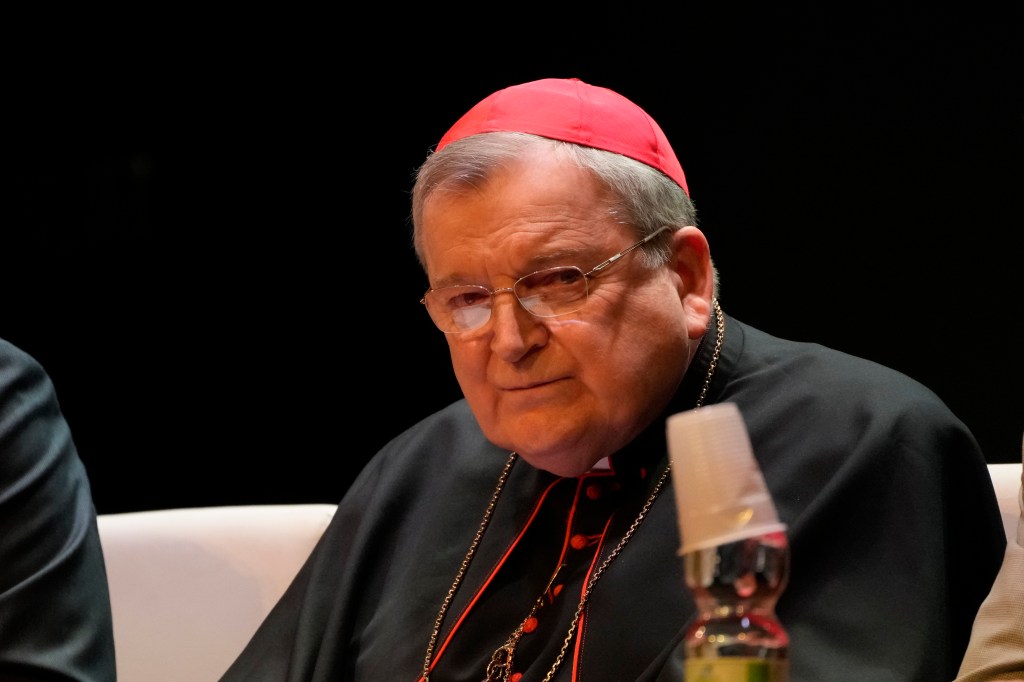Cardinals dissatisfied by Pope Francis’ answers on LGBT blessings and ordination of women, demand ‘yes or no’
A group of cardinals is concerned about the development of Catholic doctrine ahead of the upcoming Synod on Synodality.
Cardinals Raymond Burke, Walter Brandmüller, Joseph Zen Ze-kiun, Juan Sandoval Íñiguez and Robert Sarah submitted a set of dubia, formal requests to the pope and Dicastery for the Doctrine of the Faith for clarification on doctrine, in July.
The dubia requested clarification on five specific issues the cardinals believe have lacked clarity from the Holy See: the inability to reinterpret divine revelation, the inadmissibility of blessings for same-sex couples, the hierarchical authority of bishops, the ordination of women to the priesthood and the necessity for repentance for sacramental absolution.
Dubia are typically answered with simple yes or no responses, but Pope Francis answered the list of topics in long form in the same month.
The response was originally sent to the cardinals in August in the pope’s native Spanish language.
The Vatican released the answers to the public Monday.
But before those answers were made public, the group of cardinals — unsatisfied with the pope’s long form answers — resubmitted the dubia for simple affirmative or negative answers the same month.
After not receiving the yes or no answers desired after the second submission, the cardinals published the reformed set of questions in multiple languages for lay Catholics.
“Brothers and Sisters in Christ, we have manifested our deepest concern to the Roman Pontiff,” said co-signer Cardinal Burke, one of the most prominent Catholic prelates in the US.
Media and activists have latched onto the pope’s long-form answers to the dubia, seeking to extract insight into the pontiff’s ideology and ecclesial goals.
Many outlets incorrectly reported that Pope Francis condoned the idea of gay marriage in the church in his response.
The pontiff walked the church’s doctrinal line, affirming that “marriage” is an institution distinct to a man and woman receiving the sacrament of matrimony.
“The Church has a very clear conception of marriage: an exclusive, stable, and indissoluble union between a man and a woman, naturally open to the begetting of children. It calls this union ‘marriage.’ Other forms of union only realize it ‘in a partial and analogous way’ and so they cannot be strictly called ‘marriage,’” Pope Francis wrote.

“It is not a mere question of names, but the reality that what we call marriage has a unique essential constitution that demands an exclusive name, not applicable to other realities. It is undoubtedly much more than a mere ‘ideal.’”
However, the pope did leave the question of non-marital blessings between two people open for debate.
“Pastoral prudence must adequately discern whether there are forms of blessing, requested by one or more persons, that do not transmit a mistaken conception of marriage,” he said. “Because when a blessing is requested, one is expressing a request for help from God, a plea to be able to live better, a trust in a Father who can help us to live better.”
Pope Francis has been accused of intentionally propagating ambiguity ahead of this week’s 16th Ordinary General Assembly of the Synod of Bishops, which will bring together cardinals, bishops, priests, religious brothers, nuns and laity from around the world in October to discuss the Catholic Church in the modern day and how best to move forward as a global community.
Pockets of conservative Catholics have expressed deep distrust of the synod’s implication, afraid that the inclusion of non-clerics in the discussion risks “democratizing” the Church.
Following this month’s discussion, the meeting will reconvene a year later, in October 2024, to draft a final document of suggestions on church governance for consideration by the pope. The meeting holds no binding authority.
Pope Francis has said the Synod should not be characterized as a “parliament for demanding rights.” He instead called it “a journey in accordance with the Spirit.”
“The pope has said it over and over and over again in the lead up to the Synod — that the Synod is not a parliament, not a democratic process. We’re not voting on doctrine,” Bishop Robert Barron told Fox News Digital in July.
“It’s much more about strategy,” the bishop added. “A lot of people, at least in the West, I think, feel alienated from the church for different reasons. And are there better strategies we can adopt to reach out to them and reengage them and so on? I think that’s what we’ll be talking about. So, I’ll take the pope at his word. I don’t think we’re discussing doctrine.”
Read the full article Here


